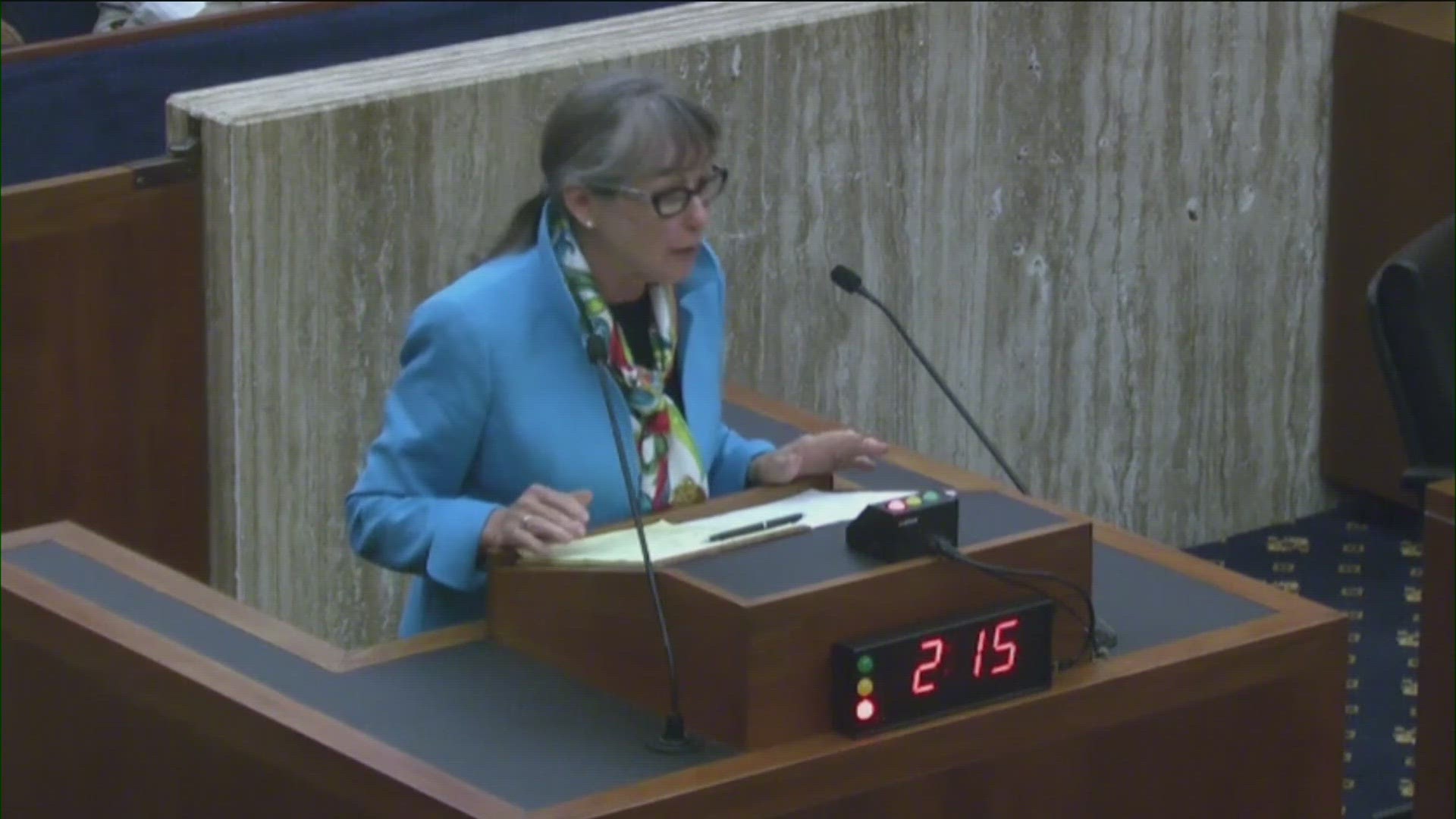BOISE, Idaho — An organization to create open primaries and establish ranked-choice voting appeared in front of the Idaho Supreme Court on Monday to ask that Idaho Attorney General Raúl Labrador fix ballot titles he submitted for their proposed initiative and disqualify him from doing anything further on the initiative due to bias.
Idahoans for Open Primaries and Reclaim Idaho sued Labrador over his labeled titles for their ballot initiative, which, if passed by voters, would allow for an open, top-four election. The election would be open to any voter of any party and would include a runoff election of four candidates that give voters a chance to rank their choices in order of preference. Currently in Idaho, the Republican primary is closed to only Republican voters but the Democratic primary is open.
Under Idaho law, the attorney general is required to prepare titles for a ballot initiative as it would appear in the next election. In this case, Labrador wrote, “measure to (1) replace voter selection of party nominees with nonparty blanket primary; (2) require ranked-choice voting for general voting for the general election.”
Labrador has previously said the initiative does not fall under state law requiring initiatives to only address a single subject, but those who want the option on the ballot have said the only subject that is in question is elections in general.
Deborah Ferguson, representing the coalition, told ISC judges that this language is unclear to an average voter and that Labrador is supposed to do an investigation into how to refer to certain terms on a ballot in order to be fair and accurate. Ferguson said the term "blanket primary" is not included in their initiative, is not common language, would cause confusion and that the ranked-choice voting in the election would not be a requirement, just an option.
"It will certainly work against the initiative and the public’s understanding and whether this is a system they would welcome," Ferguson said. She told the judges she believed that the use of language in the titles has something to do with Labrador's alleged bias towards the initiative. She referenced a tweet Labrador posted on May 2, saying people need to defeat "these bad ideas" from "liberal outside groups."
Theodore Wold, who argued in defense of the AG on Monday, also followed suit in a tweet he posted the same day. He said that state attorney generals are "the strongest line of defense against the Left's national campaign to force ranked choice voting on our elections."
“If we had a judge who was trying a matter and got on his phone and tweeted 'this defendant is guilty and this was a joke,' we’d have a problem," Ferguson said. "Having expressed such a strong animus that he wants to destroy this idea... I think the court should look at the titles and ask if they're fair and impartial."
Ferguson was asked if this meant she was requesting that the court remove Labrador from performing any more functions under the statute. She in this specific instance, yes.
However, Wold said in response that the tweets were merely meant to speak towards the concept of ranked-choice voting, not the initiative itself.
He said the public has "a need to know what their constitutional officers think about certain policies."
Wold also said the AG has fulfilled its duty under the law to provide a ballot title that is truthful and accurate.
"It is not his job to find the best way, the court only must find that he fulfilled his obligation," Wold said. He argued that the way the proposed election is described in the initiative is different than what is being requested by the coalition.
"It is not an open primary… This is different," Wold said. "It is a non-party, blanket primary.”
Some judges inquired about the use of the term "blanket primary" — Justice Colleen Zahn said she could not find in any official documents that the term is used as common parlance and asked how the public would know what that meant if it was not a regular term.
Wold said those in Washington and California use that term as common vernacular. He told the judges it's "a bit condescending" to say voters may not understand what is being proposed.
"In Kootenai County… Coeur d'Alene is part of the Spokane media market. They've heard this term for years," he said.
In order to get the proposed election change on the 2024 ballot, the initiative would need nearly 63,000 signatures from registered voters in at least 18 of 35 districts. Idahoans for Open Primaries has also asked the court for an extension on gathering signatures due to the delay from Labrador.
ISC will review the documents and oral arguments to issue a written decision on the matter at a later date.
Join 'The 208' conversation:
- Text us at (208) 321-5614
- E-mail us at the208@ktvb.com
- Join our The 208 Facebook group: https://www.facebook.com/groups/the208KTVB/
- Follow us on Twitter: @the208KTVB or tweet #the208 and #SoIdaho
- Follow us on Instagram: @the208KTVB
- Bookmark our landing page: /the-208
- Still reading this list? We're on YouTube, too:

